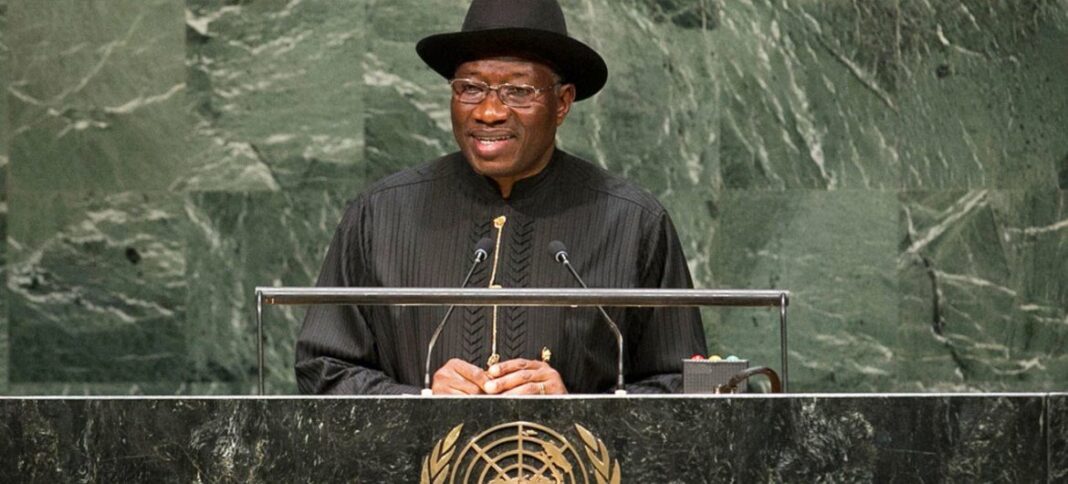Former President Goodluck Jonathan has admitted that the 2014 abduction of schoolgirls from Chibok in Borno State remains an unforgettable mark on his administration and personal life.
He made this known on Friday during the public presentation of “SCARS: Nigeria’s Journey and the Boko Haram Conundrum”, a memoir written by retired Chief of Defence Staff, General Lucky Irabor.
Jonathan commended Irabor’s years of service, describing him as “a soldier who always stood for truth and never politicised security matters.”

Reflecting on his tenure, Jonathan said the abduction of 276 students from Government Girls Secondary School, Chibok, which triggered the global #BringBackOurGirls campaign, is a tragedy he will never outlive.
“The title of this book is very symbolic. One of the greatest scars on my government is the Chibok girls. As Bishop Kukah rightly said, no plastic surgeon can erase it. It is a scar I will die with,” Jonathan stated.
The incident, which shocked the world, saw some of the abducted girls escape or regain freedom in later years, but more than 80 remain missing.
Jonathan recalled that Boko Haram insurgency began in 2009 during the presidency of Umaru Musa Yar’Adua when he was Vice President, but escalated after he assumed office.
“I fought Boko Haram for five years as President. I even thought President Buhari would wipe them out quickly, but the group still exists,” he noted, stressing that the insurgency is “far more complicated than many imagine.”
The former president urged a new approach to tackling terrorism, suggesting a “carrot and stick” strategy. He argued that Boko Haram’s heavy firepower showed foreign involvement.

“Sometimes they had even more sophisticated weapons than our soldiers. That clearly goes beyond the actions of ordinary villagers,” he added.
Jonathan’s administration came under intense criticism at the time for its handling of the Chibok abduction, with accusations of poor coordination, delayed communication, and hesitancy in accepting international support. Civil society groups and families of the victims often expressed dissatisfaction with the government’s transparency.
Jonathan, however, defended his restraint in public comments, saying it was aimed at protecting sensitive intelligence operations.
Over a decade later, successive governments have managed to secure the release of 189 of the abducted girls, while dozens are still unaccounted for. Many survivors face the burden of trauma, stigma, and interrupted education, with some returning home with children conceived in captivity.
The Federal Government has repeatedly assured that securing the freedom of the remaining Chibok girls, along with Leah Sharibu, continues to be a top national priority.




